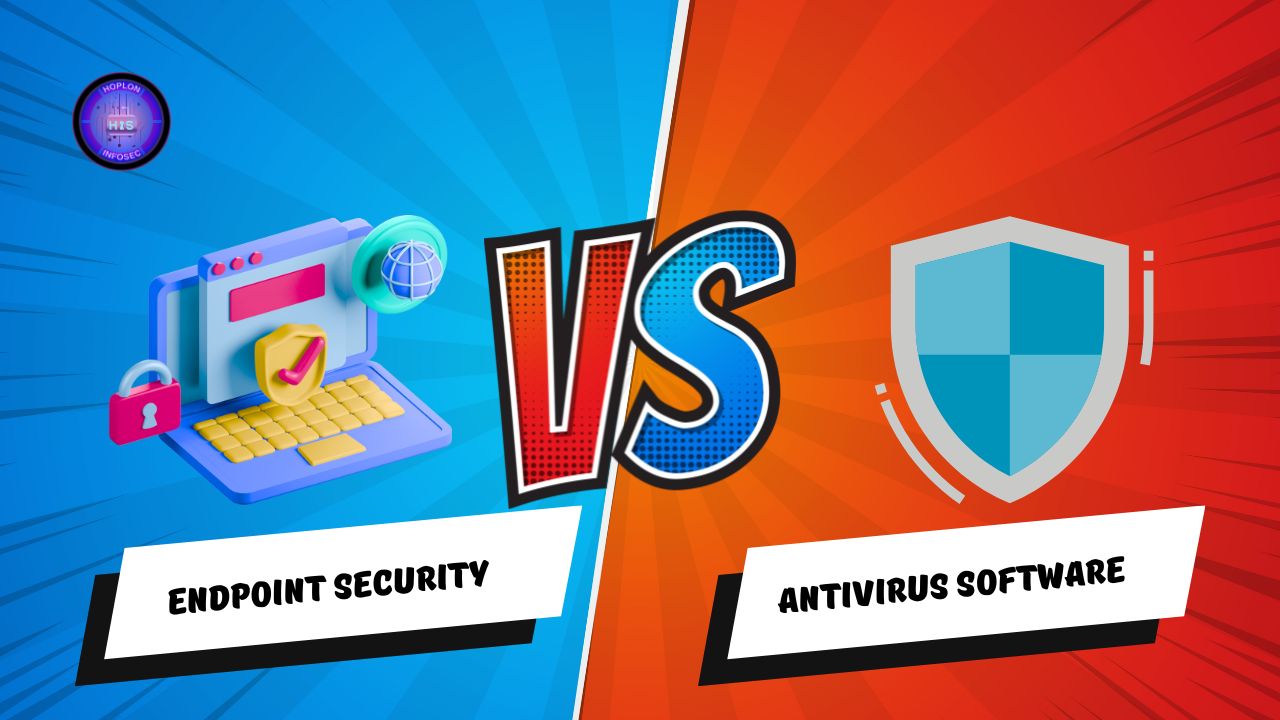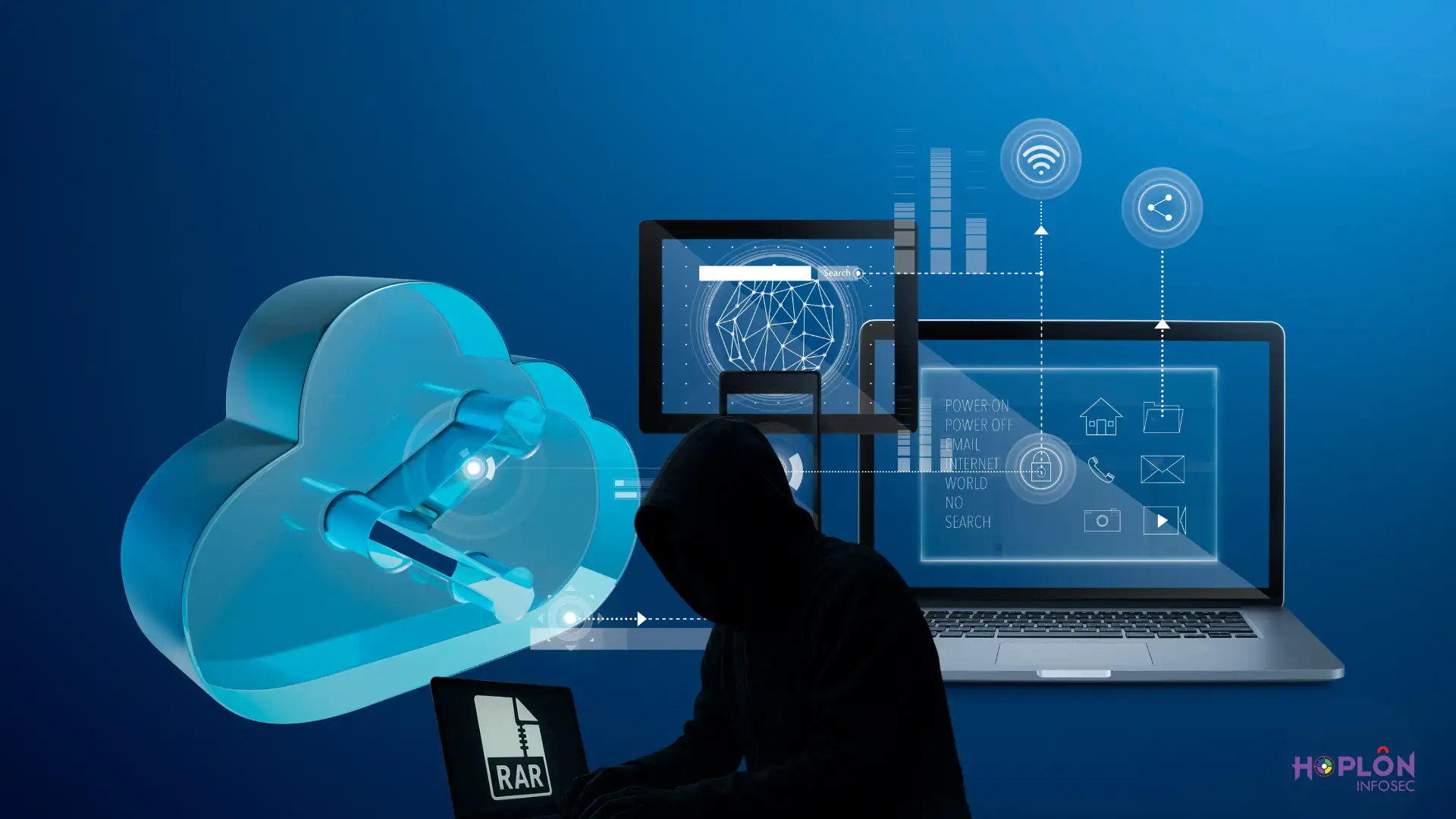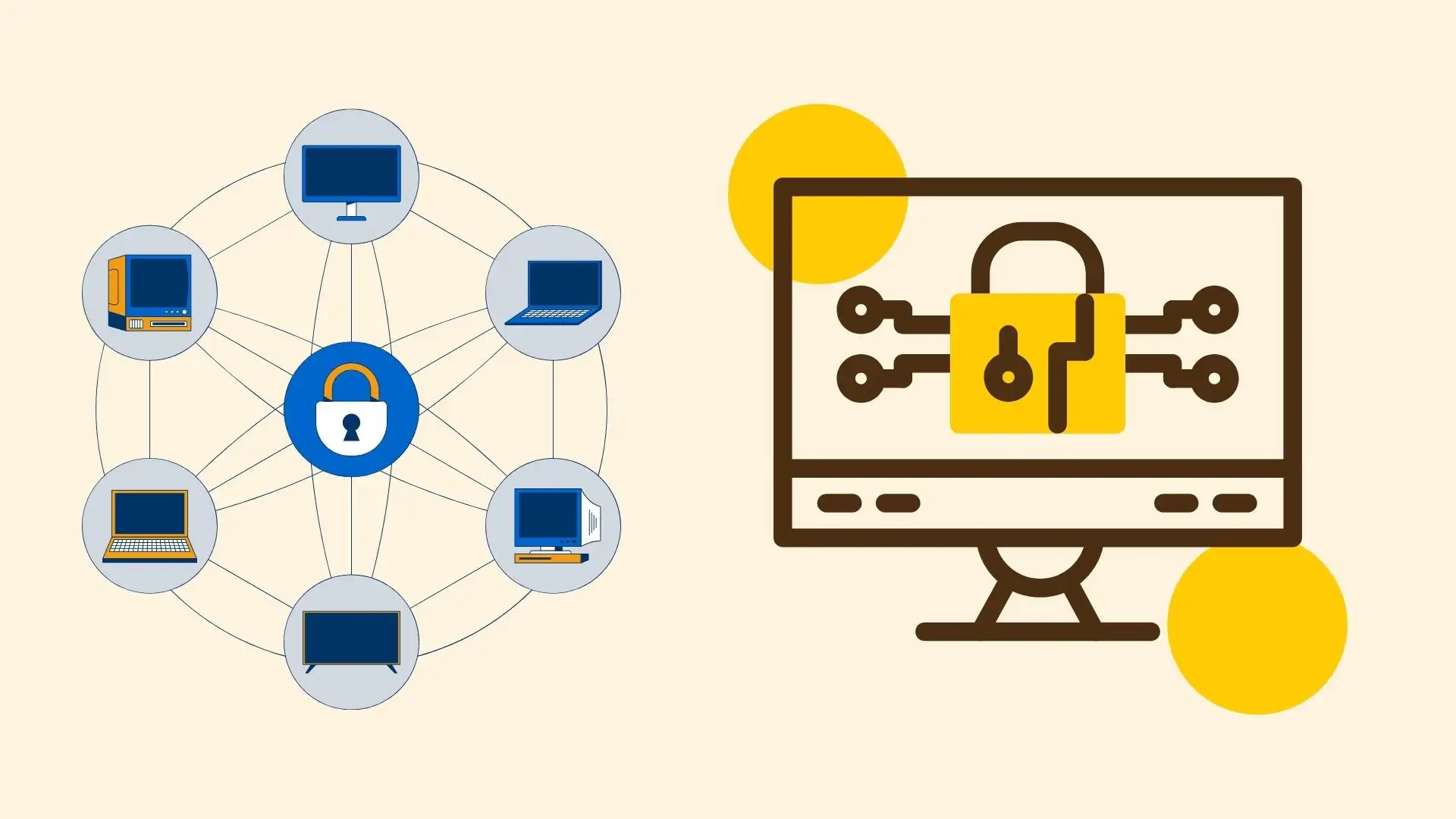In today’s digitally connected world, cyber threats are more sophisticated and frequent than ever. Individuals and organizations alike must be vigilant and well-protected against a myriad of threats such as malware, ransomware, phishing, and more. Two standard solutions that often come into the discussion are Endpoint security vs Antivirus Software. While the terms are sometimes used interchangeably, they differ significantly in scope, function, and application.
This blog explores the differences, similarities, and use cases of endpoint security and antivirus software. By the end, you’ll understand which solution—or combination—best suits your personal or organizational security needs.
What Is Antivirus Software?
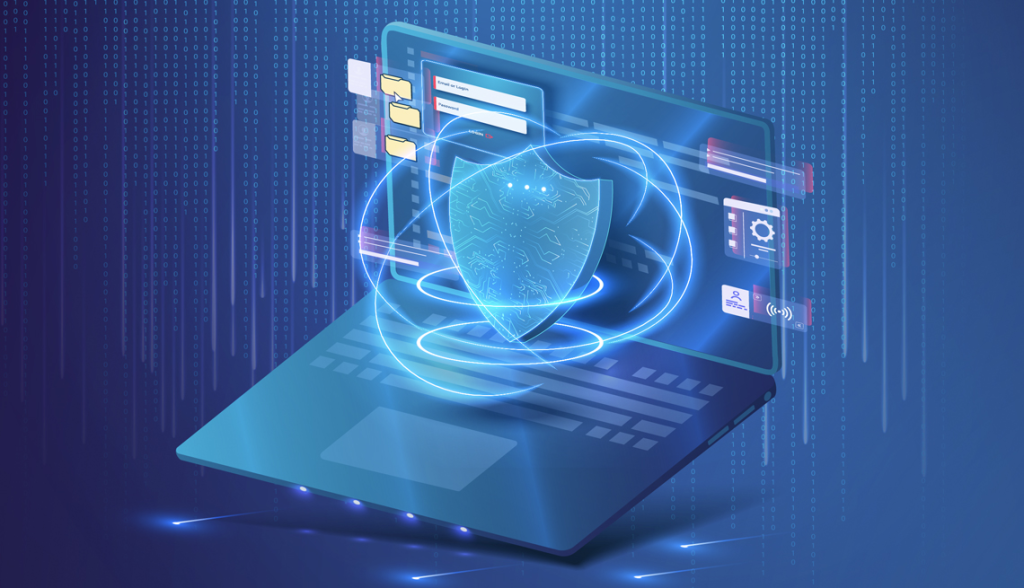
Antivirus software is one of the oldest and most commonly used forms of digital protection. Initially designed to detect and remove computer viruses, antivirus solutions have evolved to combat a range of malicious software, including worms, trojans, spyware, and adware.
Antivirus programs operate primarily by scanning files, applications, and software systems using signature-based detection. This means they rely on a database of known malware signatures to identify and eliminate threats. Some advanced antivirus tools also use heuristic analysis and behavior monitoring to catch suspicious activity even if a specific threat isn’t yet cataloged.
Key Features of Antivirus Software
Antivirus solutions typically offer:
- Malware detection and removal
- Real-time protection
- Scheduled scans
- Automatic updates
- Quarantine or deletion of infected files
While effective against a large volume of threats, antivirus software generally offers a narrower scope of protection compared to more advanced cybersecurity solutions.
What Is Endpoint Security?
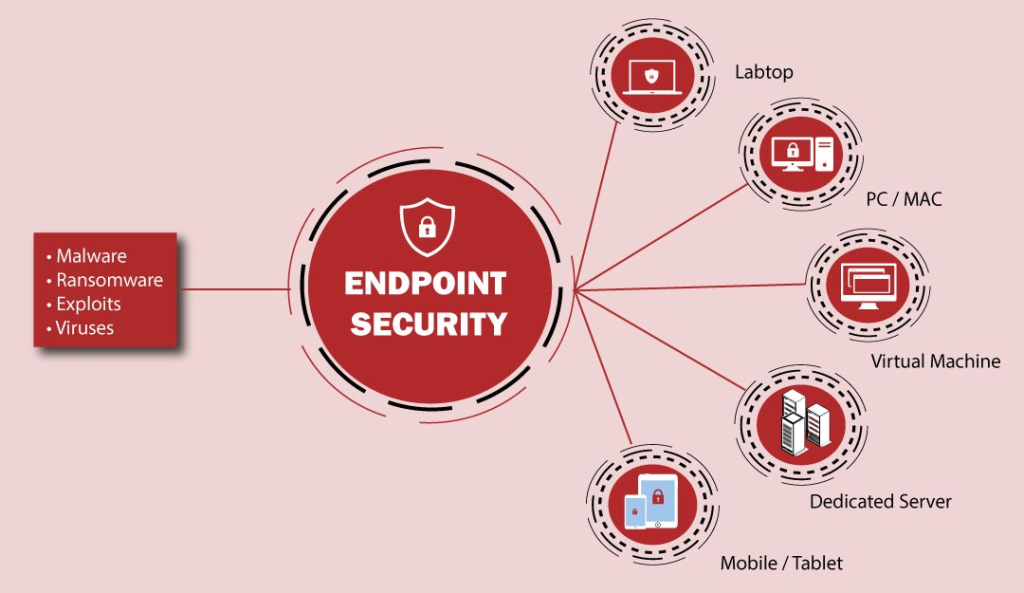
A Comprehensive Security Strategy
Endpoint security refers to a holistic approach to securing endpoints—devices like desktops, laptops, smartphones, and servers—against cyber threats. It encompasses antivirus capabilities but goes beyond them by offering additional features designed to protect entire networks and infrastructures, particularly in business environments.
Unlike standalone antivirus software, endpoint security solutions provide centralized management and monitoring. This allows IT teams to enforce security policies, push updates, and respond to threats from a central location. Endpoint security platforms often integrate with broader security ecosystems such as Security Information and Event Management (SIEM) systems and threat intelligence feeds.
Core Features of Endpoint Security Solutions
Typical endpoint security platforms may include:
- Advanced malware protection
- Data loss prevention (DLP)
- Firewall and intrusion prevention systems (IPS)
- Application control
- Device and port control
- Centralized management console
- Encryption and secure access features
Endpoint security is often favored by enterprises, government institutions, and large organizations due to its scalability and breadth of protection.
Endpoint security vs antivirus: Key Differences Between Antivirus Software and Endpoint Security
Though both solutions aim to protect systems and data, they vary significantly in terms of scope, functionality, and complexity. Here’s a side-by-side comparison to better illustrate these differences:
Comparison Table: Endpoint Security vs Antivirus Software
| Feature/Aspect | Antivirus Software | Endpoint Security |
|---|---|---|
| Scope of Protection | Limited to malware/virus detection | Comprehensive, includes malware, DLP, and more |
| Target Audience | Individuals, small businesses | Medium to large businesses, enterprises |
| Threat Detection Method | Primarily signature-based | Signature-based + behavioral + AI/ML techniques |
| Centralized Management | Not available or very limited | Full centralized dashboard and policy control |
| Device Coverage | A full centralized dashboard and policy control | Covers all networked endpoints |
| Firewall/IPS | Rarely included | Commonly integrated |
| Data Loss Prevention (DLP) | Not included | Frequently included |
| Encryption Support | Rare | Often included |
| Cost | Lower, often free or one-time purchase | Higher, usually subscription-based |
| Scalability | Limited | Highly scalable across thousands of devices |
| Use Case | Home users, freelancers | Organizations with IT infrastructure |
Endpoint Security: The Modern Solution for a Modern Threat Landscape
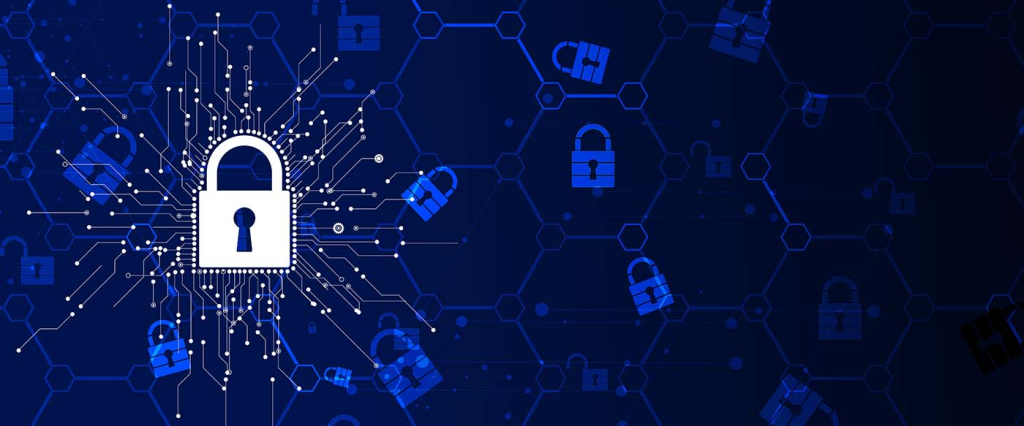
Centralized Management and Monitoring
One of the standout features of endpoint security is the centralized console, which enables IT teams to deploy updates, enforce policies, and monitor all devices from a single interface. This is especially critical in enterprise environments, where dozens or hundreds of endpoints must be managed efficiently.
Advanced Threat Detection
Endpoint security solutions leverage modern detection techniques beyond signature-based methods. These include behavior analysis, machine learning models, and real-time threat intelligence. This multilayered approach significantly improves the chances of detecting and blocking unknown or zero-day threats that traditional antivirus software might miss.
Integrated Compliance and Reporting Tools
Another reason businesses prefer endpoint security solutions is compliance with regulations such as GDPR, HIPAA, and PCI-DSS. These tools often include built-in compliance checks, auditing features, and detailed reporting mechanisms, making it easier to demonstrate security readiness during audits.
When Is Antivirus Software Still a Viable Choice?
Despite its limitations, antivirus software is far from obsolete. A reputable antivirus program can provide sufficient protection for individual users or small businesses with basic cybersecurity needs and tight budgets.
It’s also a good entry-level solution for users who may not have the technical knowledge or need for a more robust security infrastructure. Some antivirus products are lightweight, easy to use, and provide good value for general-purpose use.
That said, it is no longer advisable to rely solely on antivirus software in high-risk environments or organizations managing sensitive data.
Why Organizations Are Shifting Toward Endpoint Security

Rise of Remote Work
The global shift toward remote and hybrid work models has increased the attack surface for organizations. Employees now use a variety of devices and networks to access corporate resources. Endpoint security ensures that each device, regardless of location, is secure and monitored.
Complexity of Modern Threats
Cybercriminals are increasingly leveraging sophisticated techniques such as ransomware-as-a-service (RaaS), social engineering, and fileless malware. Antivirus software struggles to keep pace with these evolving threats. Endpoint security solutions are designed with these challenges in mind and offer real-time threat intelligence to counter them.
Compliance and Legal Obligations
With rising data privacy regulations worldwide, businesses must implement robust security measures to protect customer and corporate data. Endpoint security tools like encryption, access control, and audit logs help meet these requirements.
Combining Antivirus and Endpoint Security: Is It Worth It?
It’s important to understand that endpoint security solutions often include antivirus functionality as one of their components. However, running standalone antivirus software alongside a full-fledged endpoint security platform is generally unnecessary and could even lead to performance issues or conflicts.
Instead of stacking different security tools, the better approach is to choose an endpoint security suite that meets your needs and includes all essential features, including malware protection.
Final Thoughts: Choosing the Right Protection
The decision between antivirus software and endpoint security ultimately depends on your specific needs:
- For individual users and small offices, antivirus software may be sufficient if combined with good security practices like regular updates, strong passwords, and secure browsing habits.
- For organizations and enterprises, endpoint security is not just preferable—it’s essential. Broader protection, centralized management, and advanced detection mechanisms are critical in managing today’s complex and evolving cybersecurity threats.
Choosing the right solution isn’t just about tools, it’s about understanding your risk profile, infrastructure, and business goals.
Conclusion
Cybersecurity is no longer optional. As threats become more frequent and sophisticated, protecting your devices and data must be a top priority. While antivirus software remains a useful tool for many, endpoint security represents the next evolution in defense—a comprehensive solution designed for modern threats and infrastructures.
Whether you’re an individual user or an enterprise IT administrator, the key takeaway is this: antivirus is a subset of security, while endpoint security is the strategy. Make your choice based on the level of risk, your operational complexity, and the value of the data you’re protecting.
FAQs about Endpoint Security vs Antivirus Software
What is the main difference between endpoint security and antivirus software?
The main difference lies in scope and functionality. Antivirus software is designed primarily to detect and remove malware from individual devices using signature-based detection methods. In contrast, endpoint security is a comprehensive solution that includes antivirus features. It also offers broader protections such as data loss prevention, firewall, device control, and centralized management, making it more suitable for business and enterprise environments.
Can antivirus software be used alongside endpoint security solutions?
Generally, it’s not recommended to run standalone antivirus software alongside a complete endpoint security suite, as it can lead to performance issues or software conflicts. Most endpoint security platforms already include antivirus functionality, so additional antivirus software is usually redundant and unnecessary.
Is endpoint security only for businesses, or can individuals use it too?
While endpoint security is primarily designed for businesses, especially those with multiple devices and users, some vendors do offer endpoint protection solutions for advanced individual users. However, for most home users, a high-quality antivirus program with basic security features is typically sufficient.
Does antivirus software protect against ransomware and phishing attacks?
Basic antivirus software may detect some known ransomware or phishing attempts, but its protection is often limited. Modern endpoint security solutions provide more advanced defenses such as behavior analysis, email filtering, and real-time threat intelligence, which are more effective at combating sophisticated attacks like ransomware and phishing.
How do I know if my organization needs endpoint security instead of antivirus software?
If your organization manages multiple devices, handles sensitive data, has remote or hybrid teams, or needs to comply with data privacy regulations, endpoint security is the better choice. It offers centralized control, advanced threat protection, and scalability—features that antivirus software alone cannot provide.

